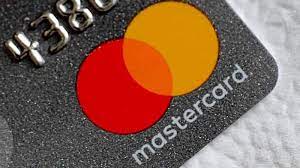
Mastercard Inc. announced its entrance into the purchase now, pay later service industry on Tuesday even as this sector of the finance industry poses a threat of erosion of the dominance of credit cards as the primary method of payment.
During the Covid-19 epidemic, the buy now, pay later sector grew because customers were cash strapped and hence were drawn to the service as it offered customers the convenience of making part-payments for items they purchase online or in physical stores that offered the service without the requirement of having to pay additional charges or taxes.
This, in turn, has led to a boom in activity at some of the top players of the market, including Klarna, Affirm Holdings, Afterpay Ltd, and PayPal Holdings Inc, in addition to a slew of large acquisition deals.
Square Inc, the payments business founded by Twitter Inc co-founder Jack Dorsey, purchased Afterpay for $29 billion in August, while PayPal said earlier in September that it would buy Japanese BNPL firm Paidy for $2.7 billion.
The announcement of a Mastercard Installments programme that will allow users to pay for online and in-store purchases in equal and interest-free installments, was announced by Mastercard on Tuesday while saying that the new service would be accessible for customers in markets throughout the United States, the United Kingdom, and Australia.
According to Mastercard, the purchase now, pay later option allows banks, lenders, fintech businesses, and wallets to provide BNPL solutions.
Customers will also be able to obtain such deals digitally, pre-approved through the lender's mobile banking app or via instant approval upon checkout, according to the company.
Typically a fee for providing modest, point-of-sale loans to clients is charged from retailers by companies that provide purchase now, pay later services. Those are repaid in interest free installments, therefore avoiding credit checks.
Other major corporations, like Apple Inc. and Goldman Sachs, are said to be working on a BNPL offering.
(Source:www.reuters.com)
During the Covid-19 epidemic, the buy now, pay later sector grew because customers were cash strapped and hence were drawn to the service as it offered customers the convenience of making part-payments for items they purchase online or in physical stores that offered the service without the requirement of having to pay additional charges or taxes.
This, in turn, has led to a boom in activity at some of the top players of the market, including Klarna, Affirm Holdings, Afterpay Ltd, and PayPal Holdings Inc, in addition to a slew of large acquisition deals.
Square Inc, the payments business founded by Twitter Inc co-founder Jack Dorsey, purchased Afterpay for $29 billion in August, while PayPal said earlier in September that it would buy Japanese BNPL firm Paidy for $2.7 billion.
The announcement of a Mastercard Installments programme that will allow users to pay for online and in-store purchases in equal and interest-free installments, was announced by Mastercard on Tuesday while saying that the new service would be accessible for customers in markets throughout the United States, the United Kingdom, and Australia.
According to Mastercard, the purchase now, pay later option allows banks, lenders, fintech businesses, and wallets to provide BNPL solutions.
Customers will also be able to obtain such deals digitally, pre-approved through the lender's mobile banking app or via instant approval upon checkout, according to the company.
Typically a fee for providing modest, point-of-sale loans to clients is charged from retailers by companies that provide purchase now, pay later services. Those are repaid in interest free installments, therefore avoiding credit checks.
Other major corporations, like Apple Inc. and Goldman Sachs, are said to be working on a BNPL offering.
(Source:www.reuters.com)





